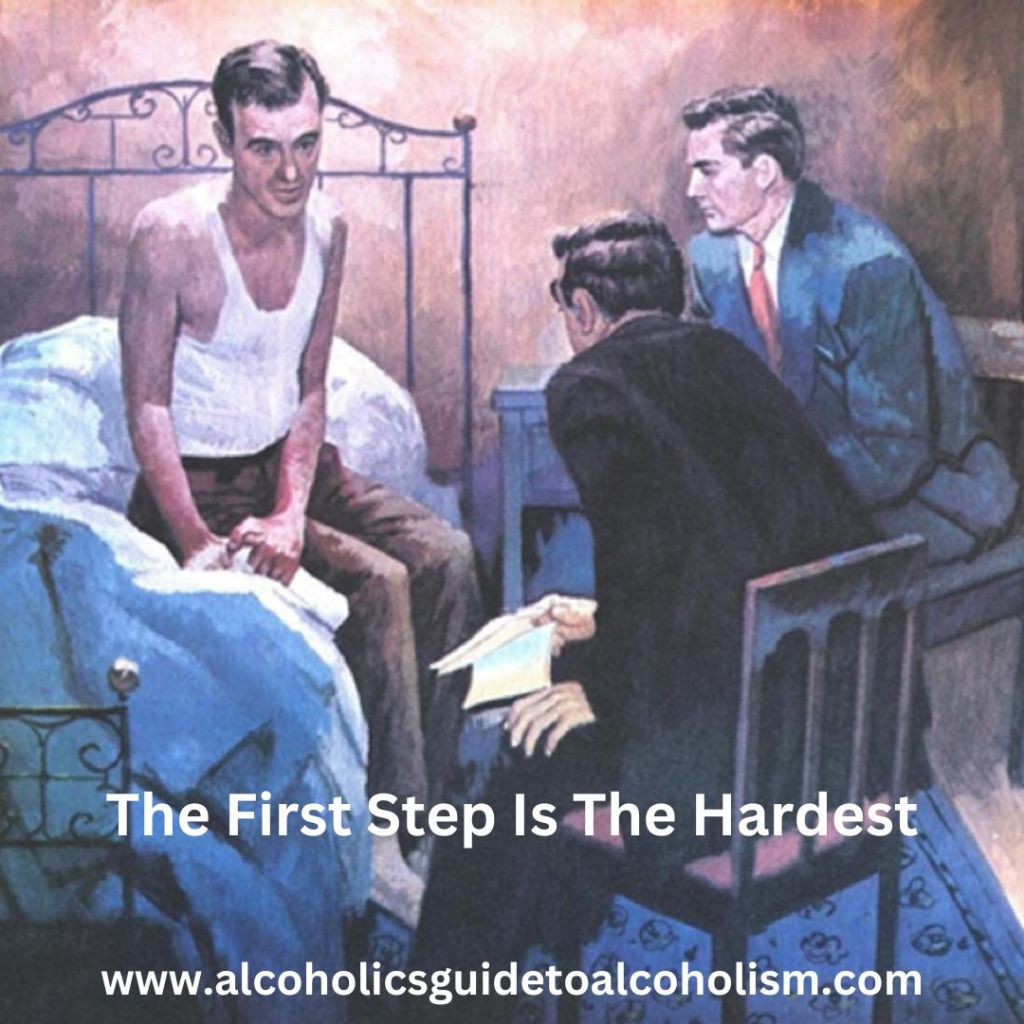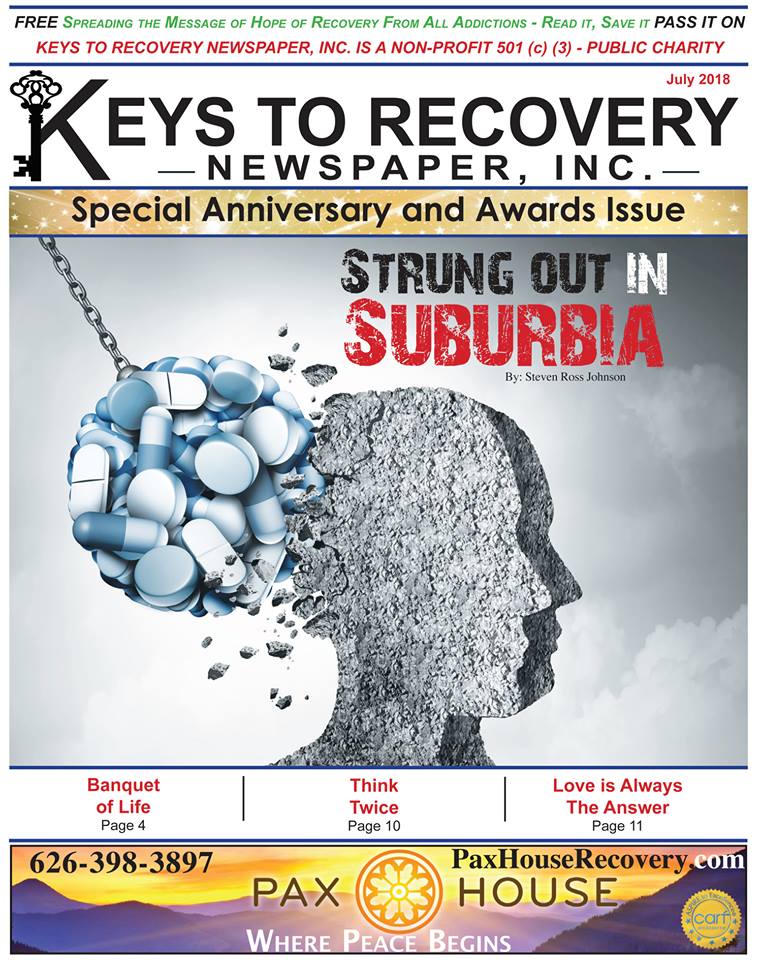This is part of a series called “The Bottled Scream” A Disease of Self – Understanding Addiction and Recovery. To go back to the introduction click here.
“We admitted we were powerless over alcohol – that our lives had become unmanageable” ,
Addiction Aftermath
Emma was bowled over by the AA meeting too. She was as shocked how the experiences of the other men there chimed perfectly with mine, how they all seemed to be like slightly different versions of me. That we were all in the same boat. The meeting was already some portal in the universe that we didn’t realise existed. Now it was offering an understanding of my problems so profound we could scarely believe our ears. It was way beyond what we could have hoped for. These ideas seemed to have been around for at least 70 years (if not alot longer). We thought we were going there to hear tips on how to control my drinking or maybe we hadn’t got a clue why we were going there. We went there, like many do, in utter desperation. Not sure what we were looking for other that a way out of our hellish predicament. We had nowhere esle to turn.
I left the meeting a changed new man in many respects. A bit of hope now competed with overwhelming fear in my heart. How I felt about myself as an alcoholic, about to be in recovery, for however long, had utterly changed. Part of me worried it was a little too late. I must confess. I looked at Emma, at the fleeting relief in her face and resolved to try my best for her, to stay sober as long as I could for her. I was no longer sure I was worth it, but she was.
They told us you have recover for yourself otherwise you will not recover. I wasn’t completely of this view. I preferred to hang in there for Emma. I didn’t love me enough to stay sober, I didn’t even like me that much. I had felt so worthless for so long that maybe this is what happens to worthless people, they drink themsleves to death. Paradoxically I was willing to fight to my last breath to stay in the game. Something was going on here that I hadn’t expressly asked for. Something was happening to me against my wishes and had been doing so for decades, like some enemy intelligence.
I remembered being 27 and leaving a good job in Cardiff City Council to follow Emma to London. Before we came to Swansea. I was somebody then? Wasn’t I? I was popular, had many friends, the life and soul of the party. I did good things, worked in a Trade Union and helped my fellow worker. Where the hell had he gone? Where was that guy, he had gradually disintegrated. Falling apart, gone mad.
That guy had problems too mind, panic attacks and depression , a period of pyschoisis after a ten day Buddhist meditation course. I had seen a few counsellors and therapists. There was somethig going on then? In fact, when I first went to University in Cardiff, I was frightened by how my thoughts kept surging around my brain, and I couldn’t slow them down, turn them down, turn them off. They seemed uncontrollable? Was this a problem that I silenced with alcohol, and drugs, and sex, but that isn’t the spiritual malady? Questions furtively scurrying round my mind? My past was my past and although I was treated for it, my present kept getting worse. Why?
They said it was a progressive illness, it even progressed in sobriety and recovery? What did? What progressed? The drinking and the addiction yes but what else? Maybe these thoughts might dissipate along with the lingering psychosis? Nothing made complete sense and thoughts about it made me want to vomit. Maybe this was my madness talking away, gibbering away in my mind.
They said the illnes centred in your mind, was I mentally ill? They also said don’t ask why I am alcoholic or how? That will lead you straight back to drinking? They said the only how worth seeking is how to recovery? Thoughts were continually darting through my mind, piercing my heart with their posionous intent. Why was I having so many thoughts too. Much worse than when I first went to Cardiff, twenty years earlier. Did my obsessive thinking progress alongside my compulsive drinking? It might have been the slight reduction in my drinking, and watered down drinking too, that gave more clarity and less blurring the edges.
Anyway I was prepared to go down fighting. I had somehow survived months and months of alcoholic psychosis which was like having a bad trip for half a year, day in, day out, only interrupted intermittently by vomiting. Why I hadn’t killed myself I don’t know? It seemed almost a humane decision given the state I was in. Put me out of my misery.
I had obviously discussed the prospect with Emma as she would come back for her teaching job every day wondering if this was the day I had finally decided to kill myself. I was so indignant that I had gotten into this situation and it wasn’t my fault. I raged at this thought. Somehow I didn’t will this deletarious situation on myself. Something in the past had happened to me to help cause it. Although that only partly explained things? There must be more to this than I realised.
I related to the not being able to stay off the drink even when I tried and I also know somewhere deep inside of me that I never could stop taking drink, and drugs, when I had started. Any drinking would mean that a day would be written off and drinking and drugging would be what I would be doing that day, for the rest of that day and following night. I used drugs so that I didn’t get drunk, too drunk, as I didn’t actually like getting drunk. When I was drunk, I was out of control drunk and didn’t like it, didn’t like being that vulnerable to the intentions of others. Didn’t like not being able to defend myself. This never stopped me getting drunk but the drugs put brakes on the drunkneness, combined it with stonedness.
I always marvelled at people who had a drink at midday or in the afternoon and then went home afterwards to have a cup of tea! I tried that once or twice and felt like I was having withdrawals, like there were scampering spiders in my blood and veins, like there wasn’t enough skin to properly cover my skull, my tongue an arid desert. I sometimes felt a mini withdrawal just waiting for my drink to be poured. Already planning the next drink to deal with the effects of the first one? A pathological wanting. If that isn’t an abnormal (if not allergic) reaction to alcohol, then what is? Wanting a second drink when you have not had the first, the drink creating a thirst for drinking not quelling it? How is this not abnormal?
I remember one man saying that an alcoholic would prefer not to drink rather than have a couple and have to stop, that this was more painful than not drinking at all. I related to that. The psychic pain that went with stopping after drinking was much worse than not drinking at all.
Emma had bought the Big Book of Alcoholics Anonymous at the end of the AA meeting and other books and reading these would help with silencing my torturously obsessive thinking. Recovery seemed like it would be a tortouous route but at least we had a direction now, rather than going round and round in circles. She had been somehow transformed too. She glowed a little with an inner conviction. Although, like me, she was too scared to be hopeful.
I had wine in the car waiting for me but didn’t drink it until I got home, out of respect. The wine felt different to before, and not because it had water in it. It no longer felt like the only solution to my problems. It felt strangely redundant, previous. It was something I had to do now, to get somewhere else later. It was strange sensation not having the same utter dependence on it as before. Before it was everything, all I had. Now it was a mortal enemy, I couldn’t wait to be shot off. It was no longer the end and be all, it was a medication of sorts. Something I had relied on in the absence of what I really needed, a solution to my problems, to my alcoholism, a condition that was more than just about drinking.
One AA member even thanked alcohol for stopping him going completely mad, for keeping him alive long enough to get to AA! Another man said his alcoholism was more of a thinking problem than a drinking one. I remembered it was also about emotions and not being able to control them. Where these somehow linked, fear based thinking and out fo control emotions? There was much food for thought. And it all made me ill thinking about it?
It was tough thinking about these things, I thought hope would drown me. Or fear. Any future sense of reality somehow made me ill. Any future proejection or even past recrimination had the same nauseating effect on me. It was as if I could only handle this moment, this second and that any instrusions from the past or the future tenses would overwhelm me. All I could deal with and rely on was the now, this moment. Anything else was overwhelming, even the hope and the excitement of a new approach to this alcoholism.
Thinking and it’s rippling emotions were the enemy from now but not in the now. I clung to the now like a life boat on a turbulent sea. It was a life boat I didn’t know of the day before. This would be almost intolerably difficult. Would l be up to it, in a way I never had been before? What where my odds, they must have been slim. How the hell was this possible, doable?
Projection and bring back to the now, to this moment, that is how. This was my new mantra, get back to the safety of the now. This was how it went for the first few days in recovery. Constantly clambering back into the lifeboat before my thoughts and negative emotions threatened to drown me. The next day, Christmas day there was a social event for recovering alcoholics in the community hall just beside our house in Brynmill Swansea. Emma and I went along. I picked up alot of tips on how to survive the first dreadful days of sobriety from other recovering alcoholics there. Mike, my former drinking pal and chair for the previous evening’s meeting was there and was very helpful. I really appreciated his early help, as did Emma. There were quite alot of people there, some of whom had not been at the previous evening’s meeting. They looked visibly shocked by my appearance.
I think they gave me a lot of their time knowing that the chances of me recovering and staying sober were probably fairly slim. I think mainly they felt sorry for Emma, and all the effort she was putting in to trying to keep me alive! I had resolved to drink water diluted wine for two days while reading the so-called Big Book of Alcoholc Anonymous. I couldn’t work out why they called it the Big Book. I would then water down the wine even more the third day and would use the medication to taper off, only if I felt I needed too. I didn’t want to become an addict too! I had been given useful tips on how to taper off and then stop. I was told to have cranberry juice and drink this along with the watered down wine, and then to just drink this when I had actually stopped drinking. I drank the cranberry juice for weeks and weeks afterwards. It was still feeding my other addiction, sugar. In fact other AAs said it was important not to come off sugar as well as booze. So I was told to continually have bars of chocolate etc in my pockets. I was advised to carry bottles of water in my pockets too when going to meetings. All of which I would do religiously, habitually.
So the first days were reducing the drinking. I read AA literature as I did. I was still suffering from poor eyesight and the lines of black typed words floated and squiggled about a bit but that too would get better on a daily basis. I found the irst 164 pages of the Big Book difficult to take in. So I read the personal stories at the back of the book about other alcoholics from the 1930s, their stories and I greatly indentified with them. Many of them were what we called “last gaspers”, chronic alcoholics like myself, close to death or permanent madness. Although, the first edition of the BB has stories of AAs even more similar to me; those who had similar profound mental issues as me when they arrived to AA recovery. I was later to realise that the majority of AAs now were not last gaspers like them or me and this has often made me feel more of an oddity at meetings. I also wondered where all the last gaspers were now? Had AA changed so much it that time?
I felt it was strange, and it added to the general weirdness of my introduction to recovery, that the solution to the problem of alcholism was wtritten in 1935! It hadn’t really been updated on since, the first 164 pages have remained the same, only the personal stories changed. I wondered why there hadn’t been anything added since or that it hadn’t been updated, surely we had found out some more about alcoholism and addiction in the intervening seventy years? In my mind, it was like I was being transported back in time to the 1930s to get the solution, the solution wasn’t just retrieved via an unknown portal in the universe but that the portal sent you back in time too.
I imagine men in shirts and ties and hats and suits and sepia, with Model Ford T cars. Smoke filled rooms and Phillp Marlow type characters. It was all very peculiar. AA recovery came from a different era and a time when religion was much more common. Saying that the solution was God , if he were sought, would take some digesting, especially to a man who grew up in the religious and ethnic conflict of Northern Ireland where there was too much religion and not enough Christianity. It might be too bitter a pill to swallow to now accept God as the solution, after all He had done back there? Or around the world? I had the Buddhism to fall back on. It had worked before and that was when I did not know what the problem was , that I was an alcoholic.
One personal story of alcoholism stood out more for me that others as it dealt with drugs as well as alcohol. Doctor, Alcoholic, Addict: Like me he didn’t think he was an alcoholic as, he just had problems.
“If you had my problems you’d drink too.” It was the section on acceptance of things that normally disturb me that disturbed me most, “Until I could accept my alcoholism I could not stay sober; Unless I accept life completely on life’s terms, I cannot be happy. I need to concentrate not so much. On what needs to be changed in the world As on what needs to be changed in me and in my attitudes.”
This was revelatary and quite nauseating. It suggested giving up not only alcohol but a life long obsession with blaming others for my feelings and attitudes to the world. I didn’t like this at all. This personal accountabilty when it was their fault! In fact, it was terrible to even consider that it was my reaction to life that caused my problems . Then I remembered that this is what Buddhism taught me. Before it prompted my first period of Psychosis (I also left London after a period of Cocaine induced psychosis but that is a story for later). It too had said that we suffered because of how we reacted to fear and craving. It was our reactions to the world that caused our suffering and we had a choice over this. I resolved to now use the meditation to help me deal with the addiction that drove me to do too much meditating of the last time out! It was not perfect but it was better than having to rely, like some suckers, on a God of your understanding!












